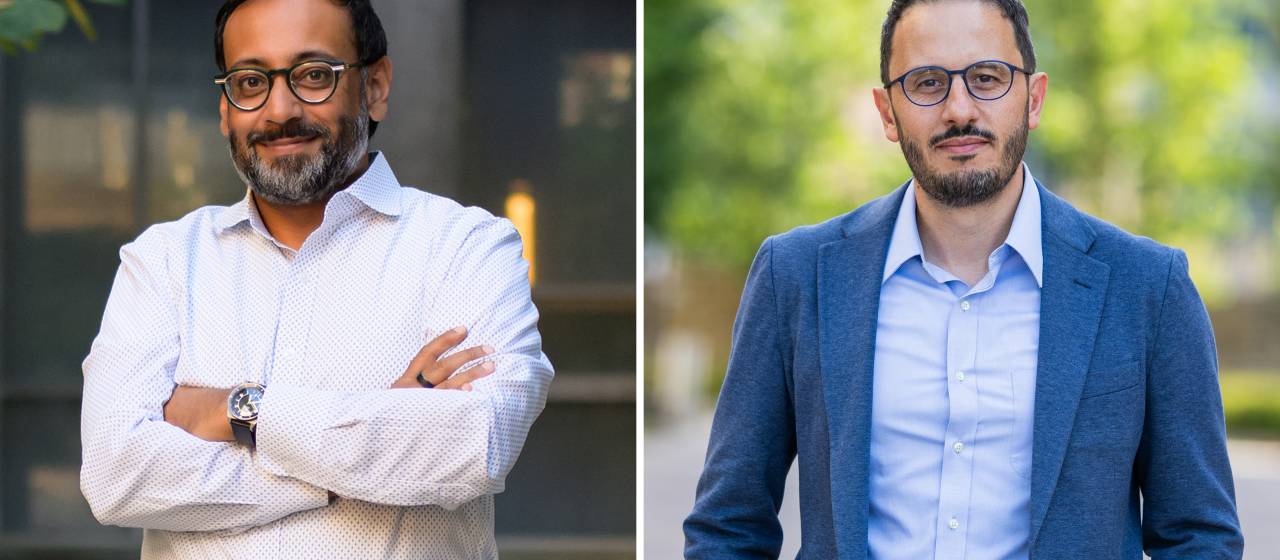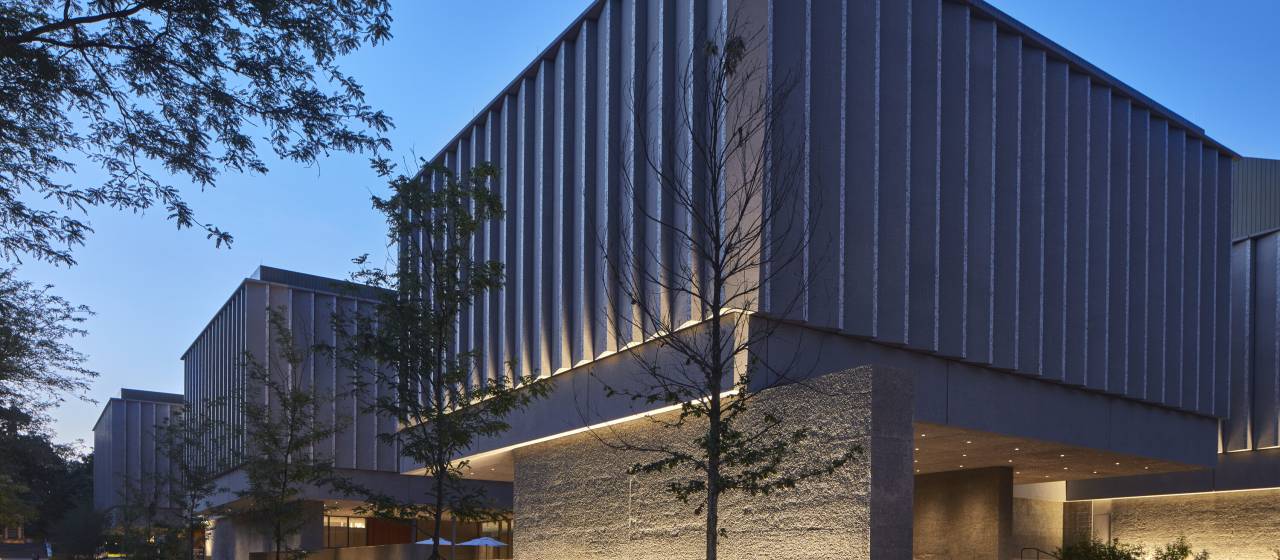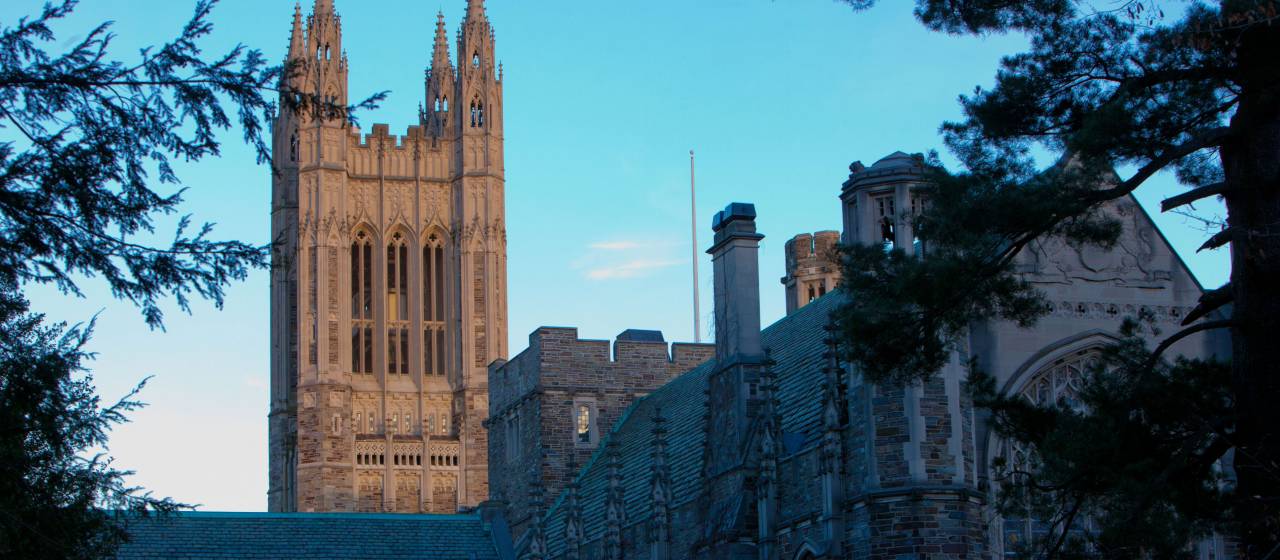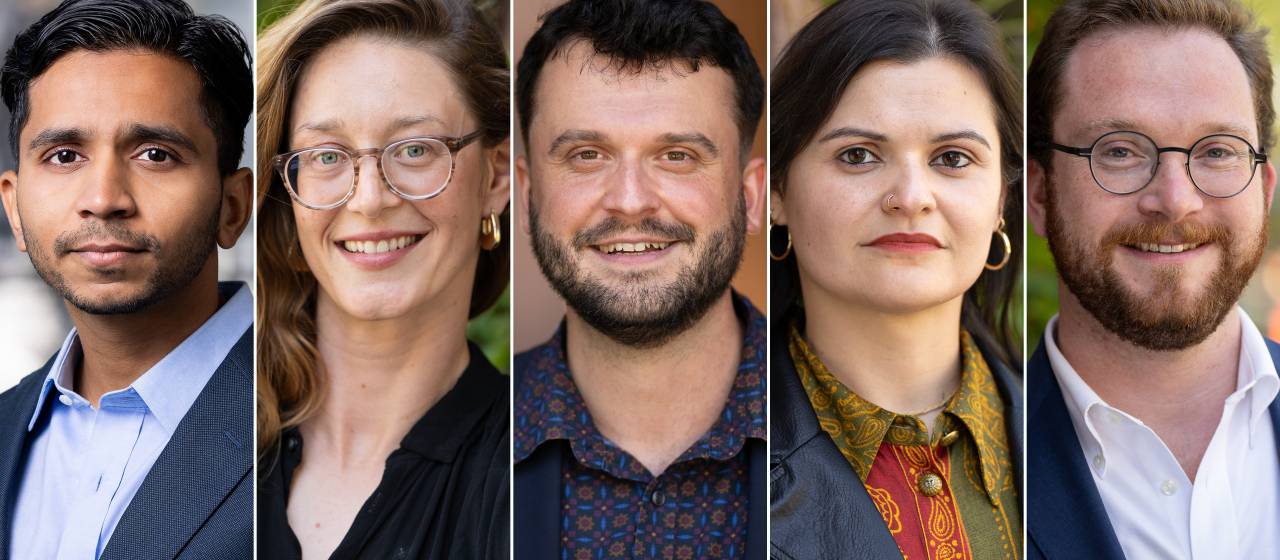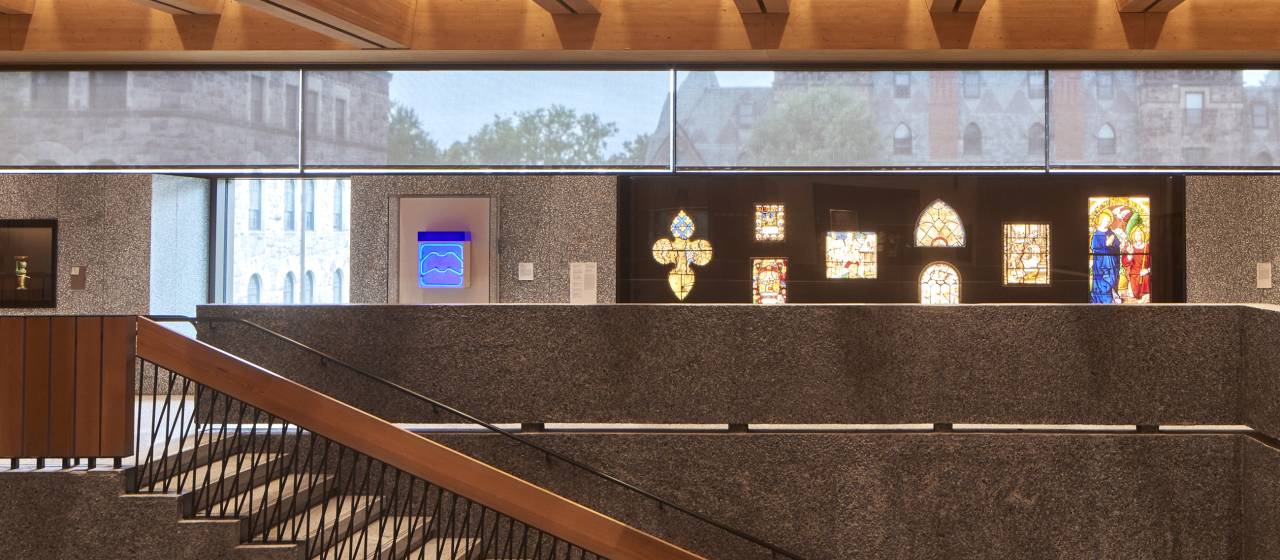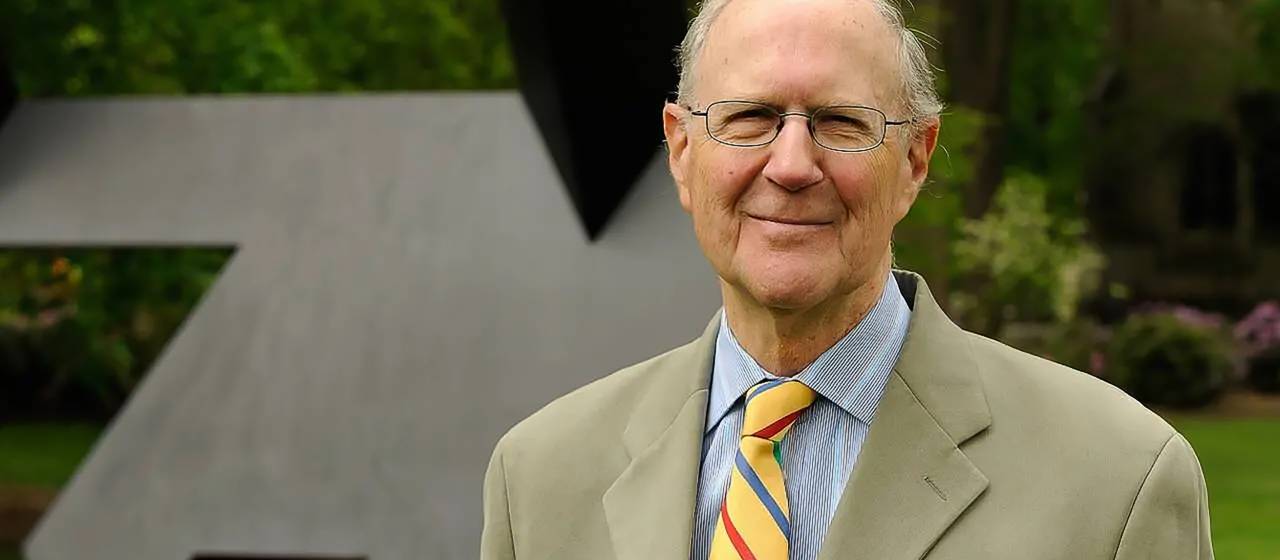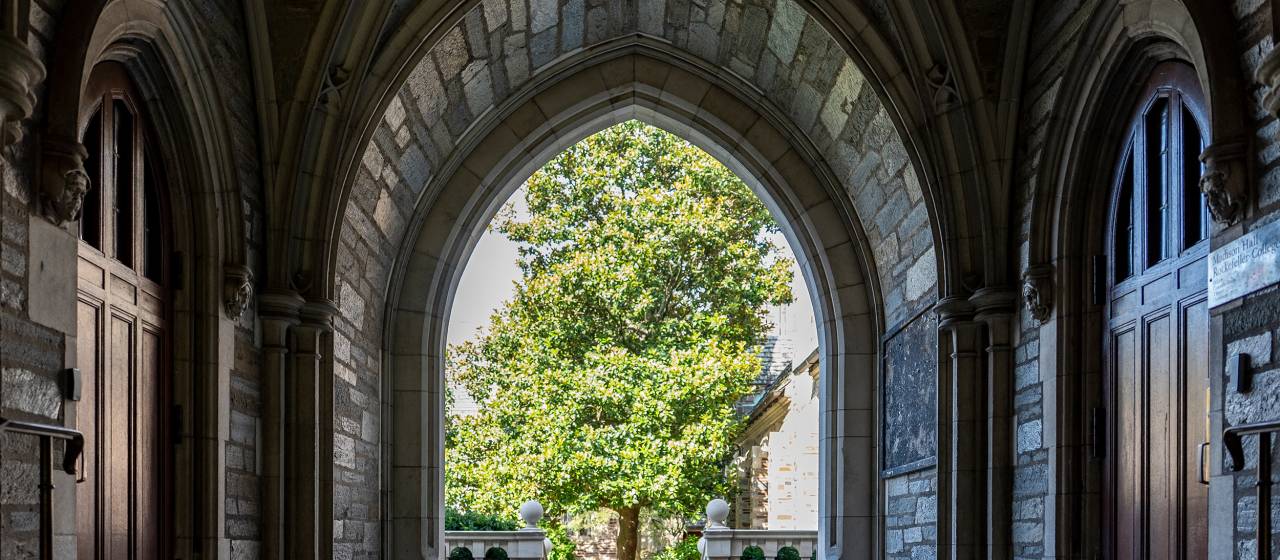Princeton alumni Nabarun Dasgupta '00 and Sébastien Philippe *18 win MacArthur 'genius' grants
Princeton alumni Nabarun Dasgupta and Sébastien Philippe have been awarded 2025 MacArthur Fellowships, both for work that honors Princeton's informal motto, “In the nation's service and the service of humanity.”
Dasgupta is a member of the Class of 2000. Philippe is a 2018 Ph.D. recipient and a visiting researcher at the Princeton School of Public and International Affairs Program on Science & Global Security (SGS).
The two Princetonians are among 20 scientists, artists and scholars across the country who each will receive an unrestricted $800,000 stipend from the John D. and Catherine T. MacArthur Foundation. The fellowships, known informally as MacArthur “genius” grants, recognize people who have demonstrated “exceptional originality in and dedication to their creative pursuits.” Other recent Princeton recipients include Ruha Benjamin, the Alexander Stewart 1886 Professor of African American Studies at Princeton University; June Huh, professor of mathematics; and Keeanga-Yamahtta Taylor, the Hughes-Rogers Professor of African American Studies.
Nabarun Dasgupta

Nabarun Dasgupta, a member of Princeton's Class of 2000, is now a senior scientist and innovation fellow at the University of North Carolina-Chapel Hill.
Dasgupta, now the Gillings Innovation Fellow and a senior scientist at the University of North Carolina-Chapel Hill, runs the Street Drug Analysis Lab, which tests samples taken from baggies and envelopes — more than 15,000 samples to date — and publishes their ingredients: fentanyl, cocaine, acetaminophen, bath salts, animal tranquilizers or anything else the drugs have been cut with. His lab has analyzed drugs from 261 counties in 43 states.
“I feel like I'm in exactly the right place, doing exactly what I was meant to be doing — and that's not a feeling that we get most times in our careers,” said Dasgupta. “The element that makes our work effective — and that brings me the most joy — is approaching this topic with humility. When we work with community groups and really listen to what their needs are and put those first, and we're able to use the amazing resources we have at academic institutions to help answer the questions that matter to them — that is what gets me going every morning.”
His lab’s motto is “science in service,” and his goal is to save lives and reduce other harms from drug use. He co-founded Remedy Alliance/For The People, a nonprofit distributor of naloxone, the reversal treatment for opioid overdose. He is internationally renowned for his work in overdose epidemiology and is a frequent news media source and guest, known for his ability to convey hard data with nuance.
After completing a molecular biology major at Princeton with thesis adviser Lynn Enquist — a year late, because Dasgupta left for a semester after failing several courses — he earned an MPH from Yale University in 2003 and then a Ph.D. in epidemiology from UNC–Chapel Hill in 2013.
“Something that I wish I had heard more when I was young is that failure and growth are all part of the same experience,” Dasgupta said. “It was hard failing out. I think a lot of high-achieving students are not used to failing and see failure as a dead end, but I feel like this [MacArthur] award is testament to redemption and to learning from the mistakes that we make.”
Sébastien Philippe

Philippe is a 2018 Ph.D. recipient and a visiting researcher at the Princeton School of Public and International Affairs Program on Science & Global Security (SGS).
The MacArthur Foundation’s award citation describes Philippe as “a nuclear security specialist exposing past harms and potential future risks from building, testing and storing launch-ready nuclear weapons.”
Nuclear weapons testing is linked with dozens of illnesses, including thyroid cancer and leukemia. The foundation cited Philippe's partnership with investigative journalists in the book Toxique and the digital archive The Moruroa Files as pivotal documentation showing the impact of France’s tests in French Polynesia. A subsequent project studying mid-century atmospheric tests in New Mexico and Nevada “revealed broader exposure than official records indicated,” the fellowship announcement noted.
Princeton’s motto resonates deeply with him, Philippe said.
“We live in a world with — still! — over 10,000 nuclear weapons, and more than 1,000 can be launched at any given minute,” Philippe said. “This is not a status quo that I can accept as a scientist or as a scholar. Even knowing how hard it is, that we are constrained, policy-wise, by all our governments holding onto these tools of military might and status, we can still change things, one project at a time, and move that needle.”
This fall Philippe started a new role as an assistant professor in the Department of Nuclear Engineering and Engineering Physics at the University of Wisconsin–Madison. Prior to that, he had been affiliated with Princeton almost continuously since starting graduate school, including a long tenure as a research scholar at SGS before his current role as visiting researcher.
“I want to acknowledge and thank my mentors at Princeton: Frank von Hippel, Zia Mian, Alexander Glaser, Rob Goldston,” he said. When he got the call informing him that he had won the MacArthur Fellowship, he thought of von Hippel, who had won the award in 1993.
“I see my work as an intellectual continuation of the work started by [SGS co-founders] Frank and Hal Feiveson,” he said. “I look forward to carrying this work and carrying that spirit forward.”






